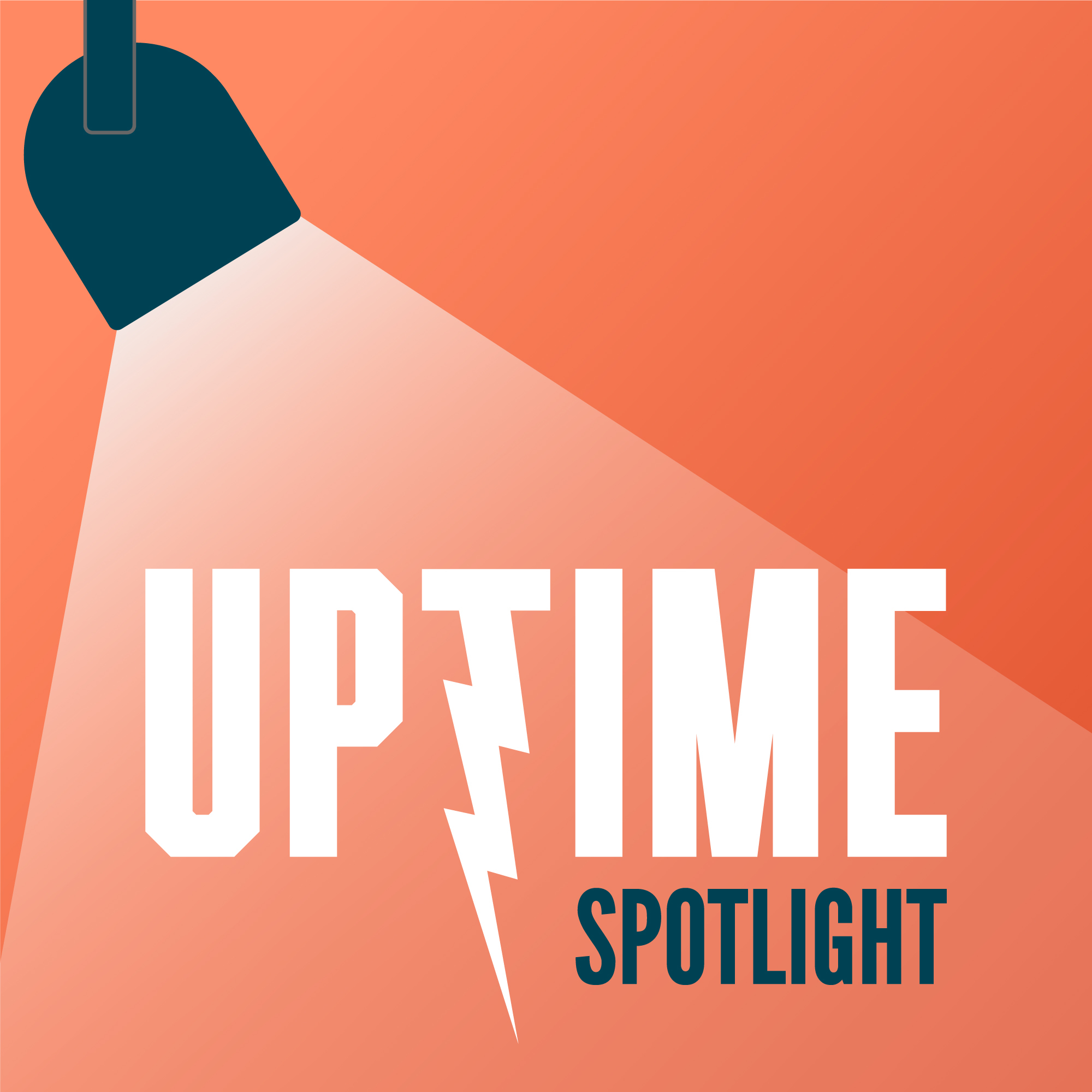Revolution Wind Stopped, Section 232 Investigation
Description
The crew discusses the Trump administration’s stoppage of Revolution Wind and US Wind, despite billions already invested. They analyze the Commerce Department’s Section 232 national security investigation into wind energy and new tariffs on steel and aluminum. State governors are responding differently to federal pressure, with Connecticut negotiating while Maryland pushes back against the coordinated assault on offshore wind projects.
Sign up now for Uptime Tech News, our weekly email update on all things wind technology. This episode is sponsored by Weather Guard Lightning Tech. Learn more about Weather Guard’s StrikeTape Wind Turbine LPS retrofit. Follow the show on Facebook, YouTube, Twitter, Linkedin and visit Weather Guard on the web. And subscribe to Rosemary Barnes’ YouTube channel here. Have a question we can answer on the show? Email us!
You are listening to the Uptime Wind Energy Podcast brought to you by build turbines.com. Learn, train, and be a part of the Clean Energy Revolution. Visit build turbines.com today. Now, here’s your hosts. Alan Hall, Joel Saxon, Phil Totaro, and Rosemary Barnes.
Allen Hall: Well, welcome to the Uptime Wind Energy Podcast.
Rosemary Barnes is in Australia. Joel Saxo is in the great north of America of land we call Wisconsin. And Phil Totaro is in lovely California, and as we’ve been talking off air before the show started. There’s a lot of news this week. We are not going to get to all of it in this episode. There is no chance of that.
But I wanted to start off first with what’s happening off the coast of Connecticut with Revolution Wind and Ted and the stoppage there, and also the more recent news about US Wind, which is a project off the coast of, of [00:01:00 ]Maryland and uh, the administration. A couple of days ago decided that, uh, they’re gonna pull the permits from US Wind.
And, and that has created quite a, a firestorm within the states because if you think about revolution wind, that was gonna power like 350,000 homes up in Connecticut and Rhode Island and US Wind, which was nearly as far down the line, was also gonna power a great number of homes off the coast of Maryland.
Now both of those have stopped. Uh, and as I pointed out in a recent Substack article and on and also on LinkedIn, and I think everybody has seen this, that pay attention to what the governors had done. ’cause this is the same thing that happened to Empire Wind and Ecuador a couple of months ago. Where, uh, empire Wind got shut down.
The governor of New York went to the administration and said, Hey, what’s, what gives they negotiated an out, which is that New York was gonna allow more gas capacity and gas lines [00:02:00 ] into the state. That same thing is, I think is happening in Connecticut and the governor of Connecticut is, uh, has vowed to work with the administration to.
Get revolution back up and running. In fact, there was a interview today, we’re recording on a Wednesday where he was on television basically saying that, that there’s, uh, the art of the deal still exists. You can’t cancel a deal after the art of the deal has been signed. Which that’s a good point. Right.
Uh. Connecticut is trying to negotiate this, and they have been talking to the state of New York, Maryland has taken a different approach and Maryland’s governors, Westmore is saying, quote, canceling a project set to bring in $1 billion in investment, create thousands of good paying jobs in manufacturing and generate more Maryland made electrical supply is utterly shortsighted.
All right, so Maryland’s taking a different approach and is, is sort of punching back hard instead of going to the negotiation table. [00:03:00 ] Is there more to this than what we can see outwardly? Or is there a lot more, uh, to it in terms of what the administration is trying to do? Or is this all about expanding the role of gas in Democrat LED states?
I
Joel Saxum: think you’re on it there, Alan. I think it’s not even Democrat led states. It’s globally because it’s the same rhetoric that the administration pushed to the eu. Hey, tariffs, tariffs, tariffs, or you’re gonna accept our LNG. Um, and it was a part of the promises made on the campaign trails as well. And, and I, this is tough, difficult for the Uptime podcast here for me at least, because we try to stay away from political stuff on the show.
We want to talk about innovation and technology and what’s moving forward, but this is such a. A paramount issue within the industry right now. We have to talk about it, but I, I, I’m with you. Like, I think it’s, it’s, it’s just furthering the, the hydrocarbon agenda there. Uh, drill, baby drill, these kind of things.
Except for it’s, it, it [00:04:00 ] ignores some basic economic principles. It’s difficult. Is the US drilling more now than it was six weeks ago, Joel? I doubt it. You know what? As we read this, I don’t know, Phil, let me get your opinion here, but as we read this, I’m gonna look at the rig counts and see what they look like right now in the States.
Phil Totaro: Yeah. I would concur that this is mostly about wanting to, um. Promote gas. They’re, they’re trying very hard to come up with these clever ways of, of hiding or obfuscating why they’re really doing it. Um, in that they’re, they’re doing this under the guise of it being a national security concern, but. That doesn’t actually really exist.
Um, you know, as I’ve pointed out, everybody involved, all the contractors involved are either US European or one, you know, Australian headquartered company. Um, it’s been suggested that maybe this is because of, uh, the Coast Guard has, you know, some, some issues with [00:05:00 ] being able to, uh, conduct their operations that frankly doesn’t.
Well, pardon the pun, I guess, but that doesn’t hold water. It’s also been suggested that this was potentially, uh, due to cybersecurity issues, which even if that’s true, the reality of that is that’s an operational issue and has nothing to do with the construction of a project. This time, they’re putting more of the onus on, um, you know, BOEM and the Department of the Interior.
Uh, to say, oh, well there’s a national security concern. By the way. We can’t tell you what it is, but it’s very serious. So, you know, it’s just a way for them to avoid transparency and, and avoid accountability. That
Allen Hall: same issue happened, Phil, with EOR and Empire Wind. I think it was Politico or the Hill. Went after the order that shut down Empire Wind to see what the details were.
And basically they got a [00:06:00 ] page of redacted text or they couldn’t discern anything. 27 pages of redacted text. What is the point of that? Like if, if you’re gonna be so bold to do it, then just write down why you’re doing it. And I don’t know why they would redact it unless Ecuador asked for it. I mean, there’s only, there’s, there’s two ways to.
Have redaction happen. It’s, it’s pri it, it’s private information. It’s commercial information. They don’t want it out. Ecuador could say, I don’t want you to share that information. The other side is the more nefarious of the two is the federal government is unwilling to tell you why they shut the project off, which is not what is supposed to happen.
There’s supposed to be some, a little bit of visibility of why they’re making the decisions or not so much why they made a decision. What went into the decision? Like what were the, the, the pieces of information that let them, uh, make the final de decision to shut off Empire Wind for a couple of weeks?
Phil Totaro: And think about it this way as well, if, if we [00:07:00 ] don’t have, I mean, regardless of anybody’s personal politics or, you know, a dislike for a particular form of technology or, or power generation, you know, the reality is. Y the government of the day has to be able to provide citizens and, you know, corporations that operate in that, that country with guarantees.
You know, this is why I got so fired up about the whole Empire Wind thing in the first place was because you, you, these guys have spent billions of dollars on leases that they now are being precluded from being able to go build. Nobody’s offered to give them their money back on the lease. They’re just saying, oh, well that permit that you got issued, that we spent either seven years or 10 years, or however many years it was, and however many, you know, compromises had to be made and how many decisions had to be taken.
Uh, you know, at the end of the day, the government has to be able to provide people with certainty. And if you don’t do that, [00:08:00 ] then we don’t have a functioning government anymore. That’s scary because then the government’s out for its own interests and not the interests of the people and who is gonna end up paying the price for all this us as, as electricity consumers.
We’re gonna now end up in a scenario where you’re gonna get brownouts and rolling blackouts and, you know, within a few years, yeah, maybe they negotiate these deals to, to do gas. You know, off take or whatever. And, and Connecticut’s gotta put up with that, and Maryland’s gotta put up with that. But they need power.
And there’s







